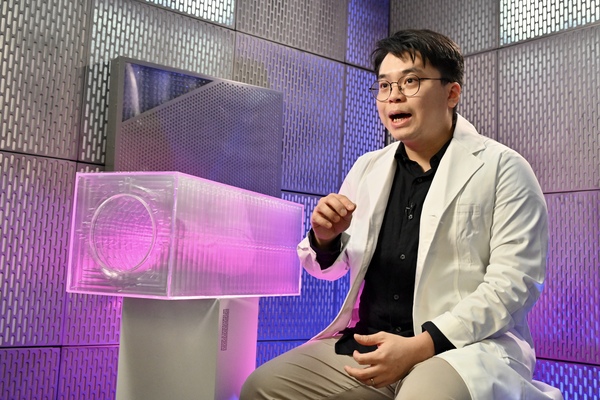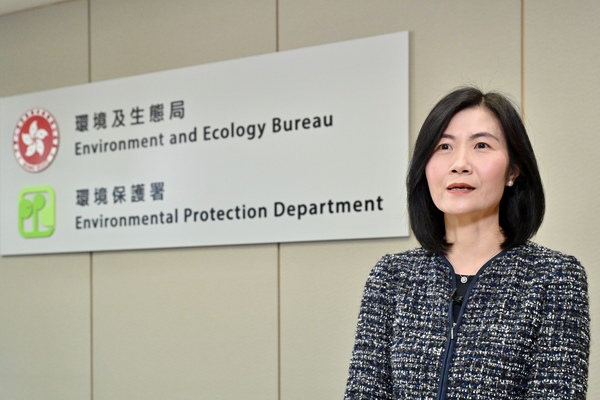Green tech addresses waste, noise

Innovative research: Support from the Green Tech Fund has allowed the firm to hire experts and acquire equipment for research and development purposes.

Proven results: The company has been successful in creating noise-absorbing meta-materials from waste plastics.

Acoustic engineering: Mak Ho-yiu explains that by altering the shape of acoustic meta-materials, different noise problems can be targeted and addressed.

Tangible outcomes: Chen Shu-yu says the company plans to establish a recycling facility in Hong Kong to mass-manufacture noise reduction products.

Research priorities: Dorothy Ma explains that the fund prioritises research projects that align with the Government’s four major decarbonisation strategies.
Plastic waste is the second largest source of municipal solid waste in Hong Kong, while noise pollution from sources such as construction and road traffic is also a concern for many in the city. Intriguingly, green technology might offer a single solution that addresses both of these environmental challenges in one go.
A technology company located at the Tseung Kwan O InnoPark is researching the use of recycled plastics to produce noise-absorbing meta-materials.
The firm’s researchers heat and soften recycled plastics, then mould them into customised shapes to absorb sound. By stacking these acoustic meta-materials, various noise reduction products can be produced for use in applications ranging from indoor ceilings to soundproof rooms and roadside noise barriers, as well as on construction sites.
Research and development (R&D) engineer Mak Ho-yiu highlighted that the uniqueness of the materials produced lies in their structure.
“We target different acoustic problems and design different shapes to absorb sound,” he said. “For example, generators or industrial pumps generate low-frequency noise. Acoustic meta-materials can focus their sound absorption effects on low-frequency ranges.”
He added that materials such as metal, paper and wood can achieve the same effect, but explained that the research team had decided to use recycled plastic as their raw material of choice in order to address Hong Kong’s plastic waste challenges.
Establishing operations
The two-year project has received about $3.3 million from the Green Tech Fund. The firm has hired experts in acoustic design and materials science and purchased acoustic and mechanical testing equipment.
In its first year of research work, the team established that PET, commonly found in bottles and utensils, and PVC, commonly used in construction materials, are both suitable for recycling to create acoustic meta-materials.
Company director Chen Shu-yu said the firm is now recycling plastic in the Mainland and producing products there, while its R&D work continues to be carried out in Hong Kong. The company also plans to establish a plant in Hong Kong to recycle plastics and mass-produce its noise-reduction products.
Research priorities
To lead Hong Kong towards carbon neutrality, in 2021 the Government outlined four key strategies in Hong Kong’s Climate Action Plan 2050. These are focused on net-zero electricity generation; energy-saving and green buildings; green transport; and waste reduction.
To support R&D projects such as the acoustic-meta-materials one, the Government established the Green Tech Fund in 2020.
Principal Assistant Secretary for Environment & Ecology (Climate Change) Dorothy Ma said the fund gives priority to research projects that align with the action plan’s decarbonisation strategies.
“These strategies aim to tackle three major sources of emissions in Hong Kong, namely electricity generation, the transport sector, and the waste sector. To address carbon emissions at the source, the Government has developed these four key carbon reduction strategies. If the funding application projects align with these strategies, they will be given priority.”
As of the end of 2023, the fund has approved 30 projects over three rounds of applications from local universities, public research institutions, and companies, awarding around $130 million in total.
The Environment & Ecology Bureau states that funded organisations are required to submit reports every six months to keep the fund updated on their progress, as well a final report upon completion for evaluation of their projects' effectiveness.


